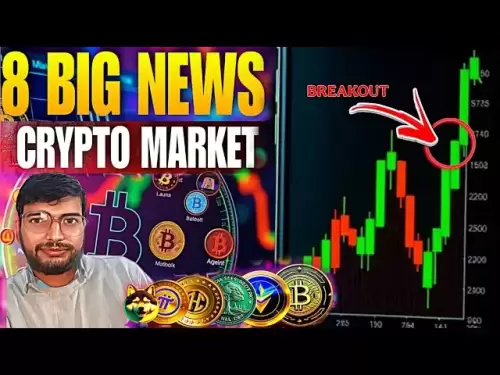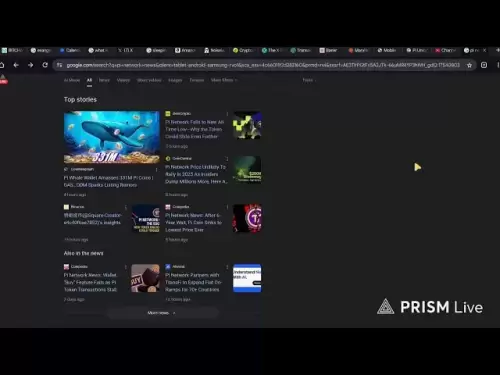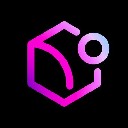-
 Bitcoin
Bitcoin $115200
-2.68% -
 Ethereum
Ethereum $3601
-5.16% -
 XRP
XRP $3.035
-2.96% -
 Tether USDt
Tether USDt $0.9997
-0.04% -
 BNB
BNB $764.5
-5.43% -
 Solana
Solana $168.1
-5.92% -
 USDC
USDC $0.9998
-0.02% -
 Dogecoin
Dogecoin $0.2090
-4.80% -
 TRON
TRON $0.3272
-0.49% -
 Cardano
Cardano $0.7306
-5.00% -
 Hyperliquid
Hyperliquid $39.16
-12.22% -
 Stellar
Stellar $0.3967
-4.96% -
 Sui
Sui $3.566
-5.95% -
 Chainlink
Chainlink $16.55
-6.57% -
 Bitcoin Cash
Bitcoin Cash $552.3
-3.90% -
 Hedera
Hedera $0.2516
-4.69% -
 Avalanche
Avalanche $21.99
-5.75% -
 Toncoin
Toncoin $3.621
-0.28% -
 Ethena USDe
Ethena USDe $1.000
-0.03% -
 UNUS SED LEO
UNUS SED LEO $8.951
0.02% -
 Litecoin
Litecoin $105.9
-3.59% -
 Shiba Inu
Shiba Inu $0.00001232
-5.00% -
 Polkadot
Polkadot $3.640
-5.55% -
 Uniswap
Uniswap $9.048
-7.03% -
 Monero
Monero $301.8
-1.51% -
 Dai
Dai $0.9999
-0.01% -
 Bitget Token
Bitget Token $4.334
-3.66% -
 Pepe
Pepe $0.00001064
-6.17% -
 Cronos
Cronos $0.1367
-5.78% -
 Aave
Aave $259.2
-4.59%
How to set gas fees in OKX Wallet? Sharing tips on optimizing transaction costs
To optimize transaction costs on Ethereum, use OKX Wallet to set gas fees, adjust based on urgency, and consider timing and batching transactions for efficiency.
May 18, 2025 at 01:57 am
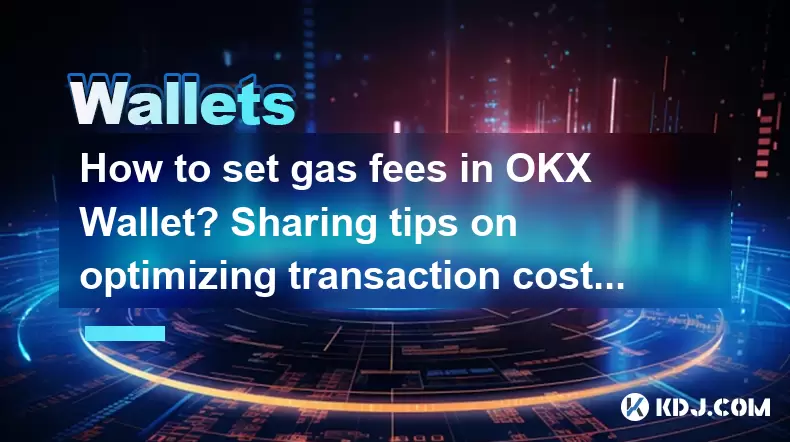
Setting gas fees in the OKX Wallet is an essential skill for anyone looking to optimize their transaction costs on the Ethereum network or other blockchain platforms that use gas. Gas fees are payments made to miners for processing transactions and executing smart contracts. Understanding how to set these fees correctly can save you money and ensure your transactions are processed efficiently. In this article, we will guide you through the process of setting gas fees in OKX Wallet and share tips on how to optimize your transaction costs.
Understanding Gas Fees
Before diving into the specifics of setting gas fees in OKX Wallet, it's important to understand what gas fees are and why they matter. Gas fees are the costs associated with executing transactions or smart contracts on a blockchain. They are measured in units of gas, and the price of gas is determined by the network's current demand. Higher demand leads to higher gas prices, and vice versa.
Accessing the OKX Wallet
To begin setting gas fees, you first need to access your OKX Wallet. Here's how you can do it:
- Open the OKX app on your mobile device or visit the OKX website on your computer.
- Log in to your OKX account using your credentials.
- Navigate to the Wallet section of the app or website. This is usually found in the main menu or dashboard.
Initiating a Transaction
Once you are in the OKX Wallet, you can initiate a transaction. Here's how to proceed:
- Select the cryptocurrency you want to send or interact with.
- Enter the recipient's address and the amount you wish to send.
- Click on the "Send" or "Confirm" button to proceed to the next step.
Setting Gas Fees
When you reach the transaction confirmation page, you will see an option to set the gas fee. Here's how to do it:
- Look for the "Gas Fee" or "Transaction Fee" section. This is where you can adjust the gas price and gas limit.
- Adjust the gas price to a level that suits your urgency. A higher gas price means your transaction will be processed faster, but it will cost more. A lower gas price means it will take longer but will be cheaper.
- Set the gas limit based on the complexity of the transaction. For simple transfers, a lower gas limit is usually sufficient. For more complex smart contract interactions, a higher gas limit may be necessary.
Optimizing Transaction Costs
Optimizing your transaction costs involves finding the right balance between speed and cost. Here are some tips to help you do that:
- Use Gas Price Estimators: Tools like EthGasStation or Etherscan provide real-time data on gas prices. You can use these to set a competitive gas price that ensures your transaction is processed quickly without overpaying.
- Batch Transactions: If you need to perform multiple transactions, consider batching them into a single transaction. This can significantly reduce the total gas cost.
- Time Your Transactions: Gas prices tend to be lower during off-peak hours. If your transaction is not urgent, consider sending it during times of lower network congestion.
- Use Layer 2 Solutions: Platforms like Optimism or Arbitrum offer lower transaction fees by processing transactions off the main Ethereum chain. If available, using these can save you money.
Monitoring and Adjusting
After setting your gas fees, it's important to monitor your transaction and be ready to adjust if necessary. Here's how:
- Track Your Transaction: Use a blockchain explorer like Etherscan to monitor the status of your transaction. If it's taking too long, you might need to increase the gas price.
- Adjust Gas Price: If your transaction is stuck, you can try to speed it up by increasing the gas price. Most wallets, including OKX Wallet, allow you to do this without canceling the original transaction.
Common Mistakes to Avoid
When setting gas fees, there are several common mistakes to avoid:
- Setting Gas Price Too Low: If the gas price is too low, your transaction may never be processed. Always check current gas prices before setting yours.
- Setting Gas Limit Too Low: If the gas limit is too low, your transaction may fail, and you will lose the gas fee. Ensure the gas limit is sufficient for the transaction to complete.
- Ignoring Network Congestion: Failing to account for network congestion can lead to overpaying for gas or having your transaction delayed. Always consider the current state of the network.
FAQs
Q: Can I set gas fees in OKX Wallet for all types of cryptocurrencies?
A: No, gas fees are specific to blockchains that use the concept of gas, such as Ethereum. For other cryptocurrencies, you may encounter different fee structures, and OKX Wallet will handle these accordingly.
Q: What happens if I set the gas limit too high?
A: If you set the gas limit too high, you will only be charged for the gas actually used by the transaction. The excess gas will be refunded to your account, but setting it too high unnecessarily can lead to confusion and potential errors.
Q: Is it possible to cancel a transaction if I set the gas fee incorrectly?
A: Yes, if you set the gas fee incorrectly and the transaction has not been mined yet, you can try to cancel it by sending a new transaction with a higher gas price to replace the original one. However, this is not always guaranteed to work.
Q: How can I check the current gas prices before setting them in OKX Wallet?
A: You can use external tools like EthGasStation or Etherscan to check current gas prices. These platforms provide real-time data that can help you set an appropriate gas price for your transaction.
Disclaimer:info@kdj.com
The information provided is not trading advice. kdj.com does not assume any responsibility for any investments made based on the information provided in this article. Cryptocurrencies are highly volatile and it is highly recommended that you invest with caution after thorough research!
If you believe that the content used on this website infringes your copyright, please contact us immediately (info@kdj.com) and we will delete it promptly.
- Cardano Price, Pi Network, and Crypto Presales: What's the Buzz?
- 2025-08-02 08:50:12
- XRP Fund Success: Teucrium CEO Reveals Trillions on the Horizon
- 2025-08-02 09:10:12
- Challenge Coins: More Than Just Collectibles – A Military Tradition
- 2025-08-02 08:30:12
- Under the Radar: Hunting for 100x Crypto Gems in a Pi Network World
- 2025-08-02 08:30:12
- Bitcoin, Solana, and Altcoin Season: What's Hot and What's Not?
- 2025-08-02 07:10:12
- Toncoin, Rollblock, and the Token Offering Landscape: A New York Minute
- 2025-08-02 07:10:12
Related knowledge

What is a watch-only wallet in Trust Wallet?
Aug 02,2025 at 03:36am
Understanding the Concept of a Watch-Only WalletA watch-only wallet in Trust Wallet allows users to monitor a cryptocurrency address without having ac...
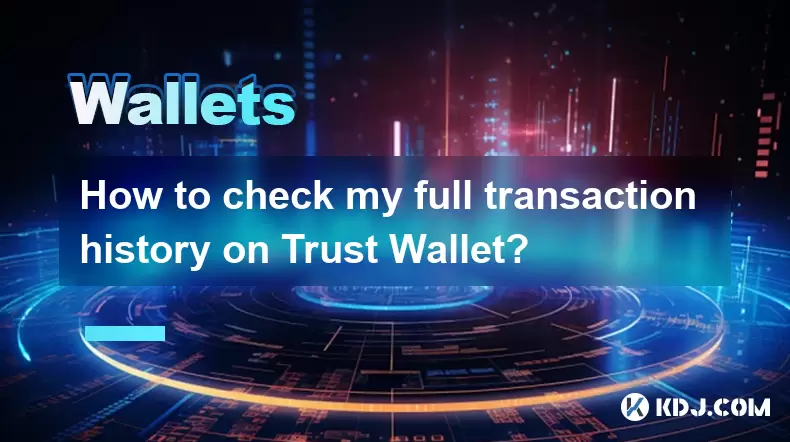
How to check my full transaction history on Trust Wallet?
Aug 02,2025 at 09:24am
Understanding Transaction History in Trust WalletTrust Wallet is a widely used non-custodial cryptocurrency wallet that supports a broad range of bloc...
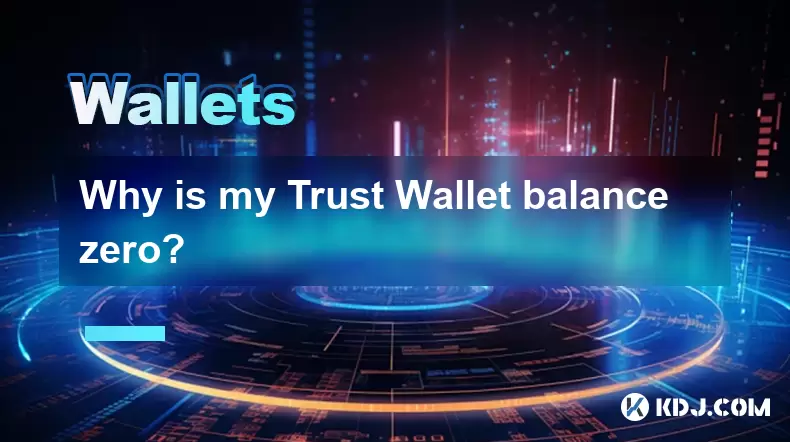
Why is my Trust Wallet balance zero?
Aug 02,2025 at 03:49am
Understanding Trust Wallet Balance Display IssuesIf you're seeing a zero balance in your Trust Wallet despite knowing you've previously received or se...
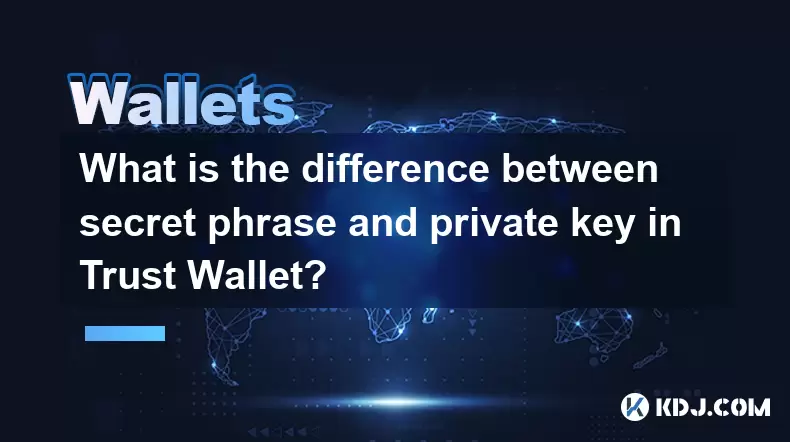
What is the difference between secret phrase and private key in Trust Wallet?
Aug 02,2025 at 09:49am
Understanding the Role of a Secret Phrase in Trust WalletThe secret phrase, also known as a recovery phrase or seed phrase, is a sequence of 12 or 24 ...
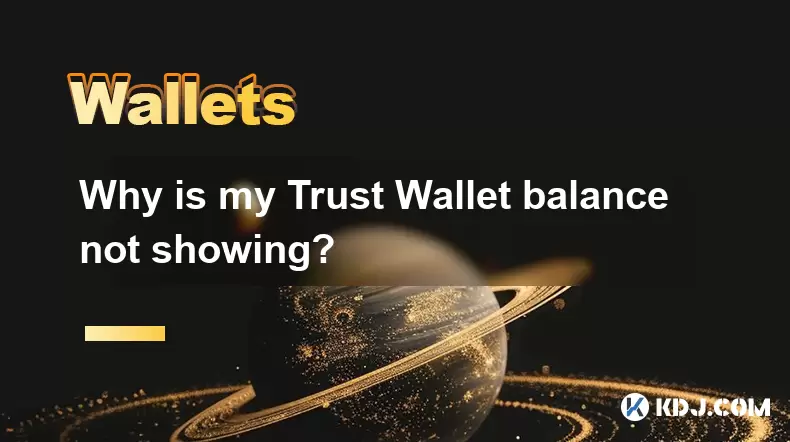
Why is my Trust Wallet balance not showing?
Aug 02,2025 at 06:01am
Understanding Trust Wallet Balance Display IssuesMany users encounter the issue where their Trust Wallet balance is not showing despite having previou...
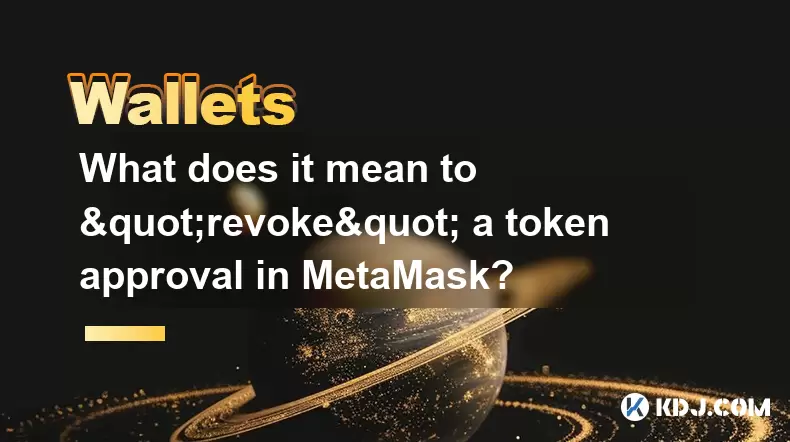
What does it mean to "revoke" a token approval in MetaMask?
Aug 02,2025 at 02:57am
Understanding Token Approvals in MetaMaskWhen interacting with decentralized applications (dApps) on Ethereum or EVM-compatible blockchains, users oft...

What is a watch-only wallet in Trust Wallet?
Aug 02,2025 at 03:36am
Understanding the Concept of a Watch-Only WalletA watch-only wallet in Trust Wallet allows users to monitor a cryptocurrency address without having ac...

How to check my full transaction history on Trust Wallet?
Aug 02,2025 at 09:24am
Understanding Transaction History in Trust WalletTrust Wallet is a widely used non-custodial cryptocurrency wallet that supports a broad range of bloc...

Why is my Trust Wallet balance zero?
Aug 02,2025 at 03:49am
Understanding Trust Wallet Balance Display IssuesIf you're seeing a zero balance in your Trust Wallet despite knowing you've previously received or se...

What is the difference between secret phrase and private key in Trust Wallet?
Aug 02,2025 at 09:49am
Understanding the Role of a Secret Phrase in Trust WalletThe secret phrase, also known as a recovery phrase or seed phrase, is a sequence of 12 or 24 ...

Why is my Trust Wallet balance not showing?
Aug 02,2025 at 06:01am
Understanding Trust Wallet Balance Display IssuesMany users encounter the issue where their Trust Wallet balance is not showing despite having previou...

What does it mean to "revoke" a token approval in MetaMask?
Aug 02,2025 at 02:57am
Understanding Token Approvals in MetaMaskWhen interacting with decentralized applications (dApps) on Ethereum or EVM-compatible blockchains, users oft...
See all articles





















